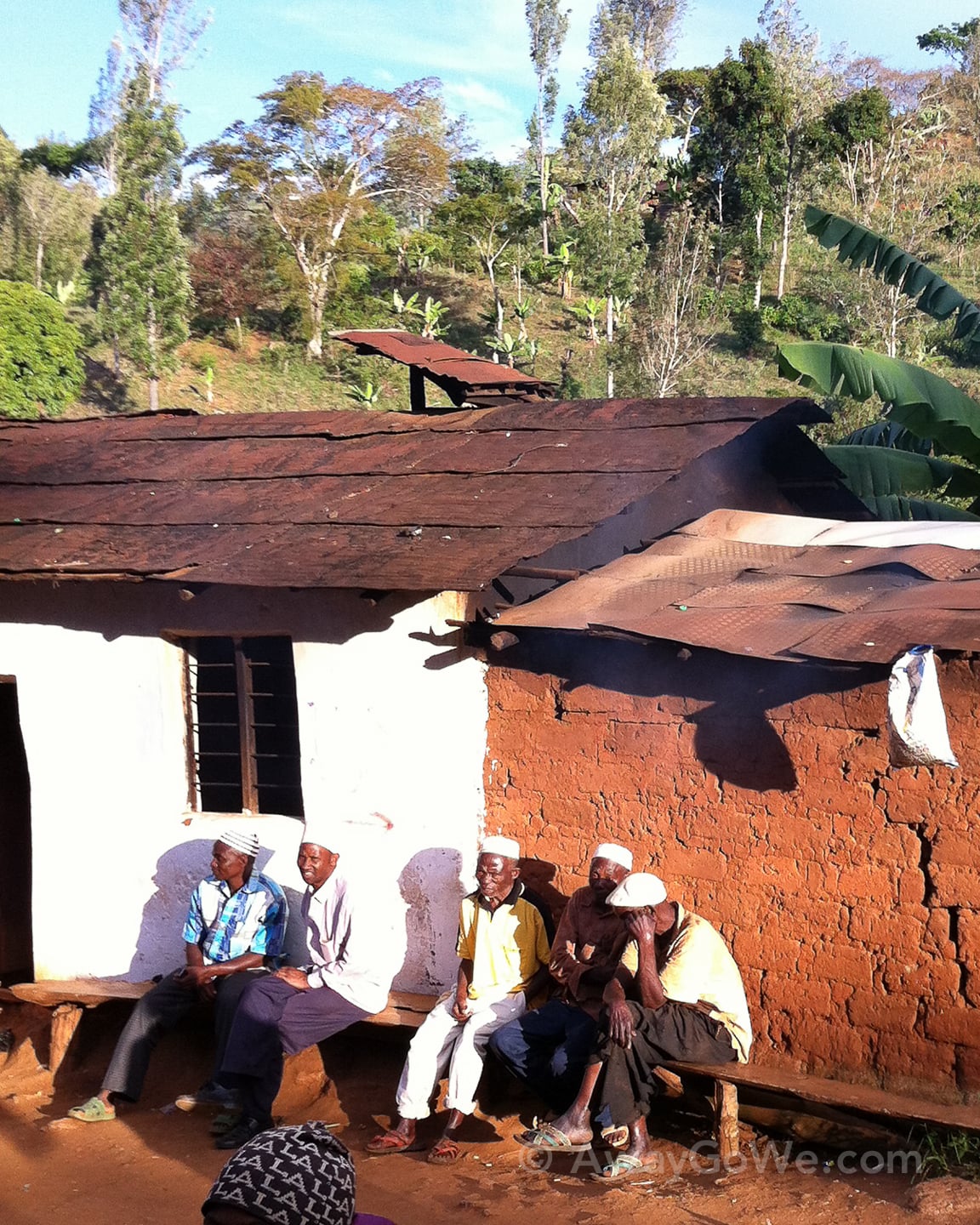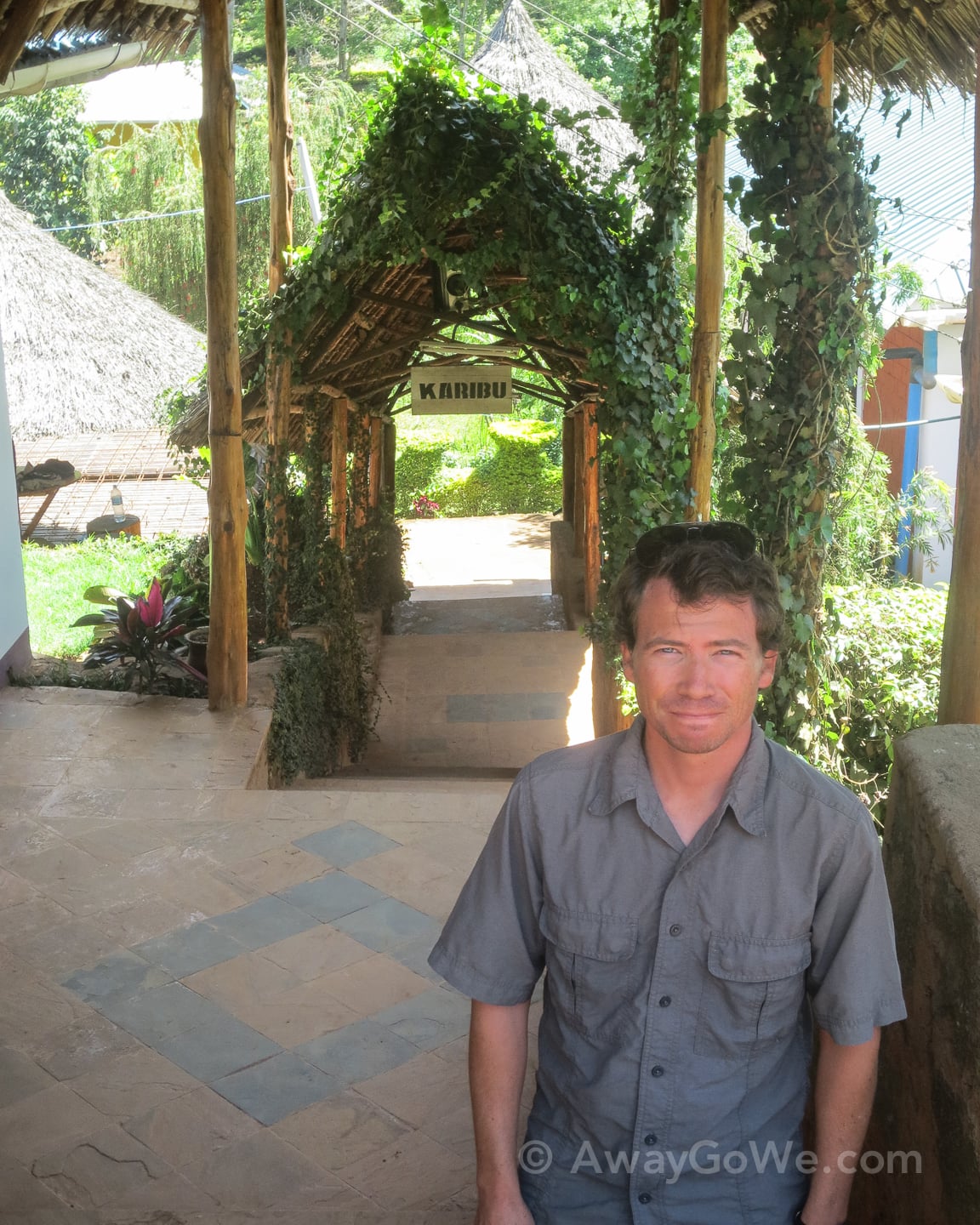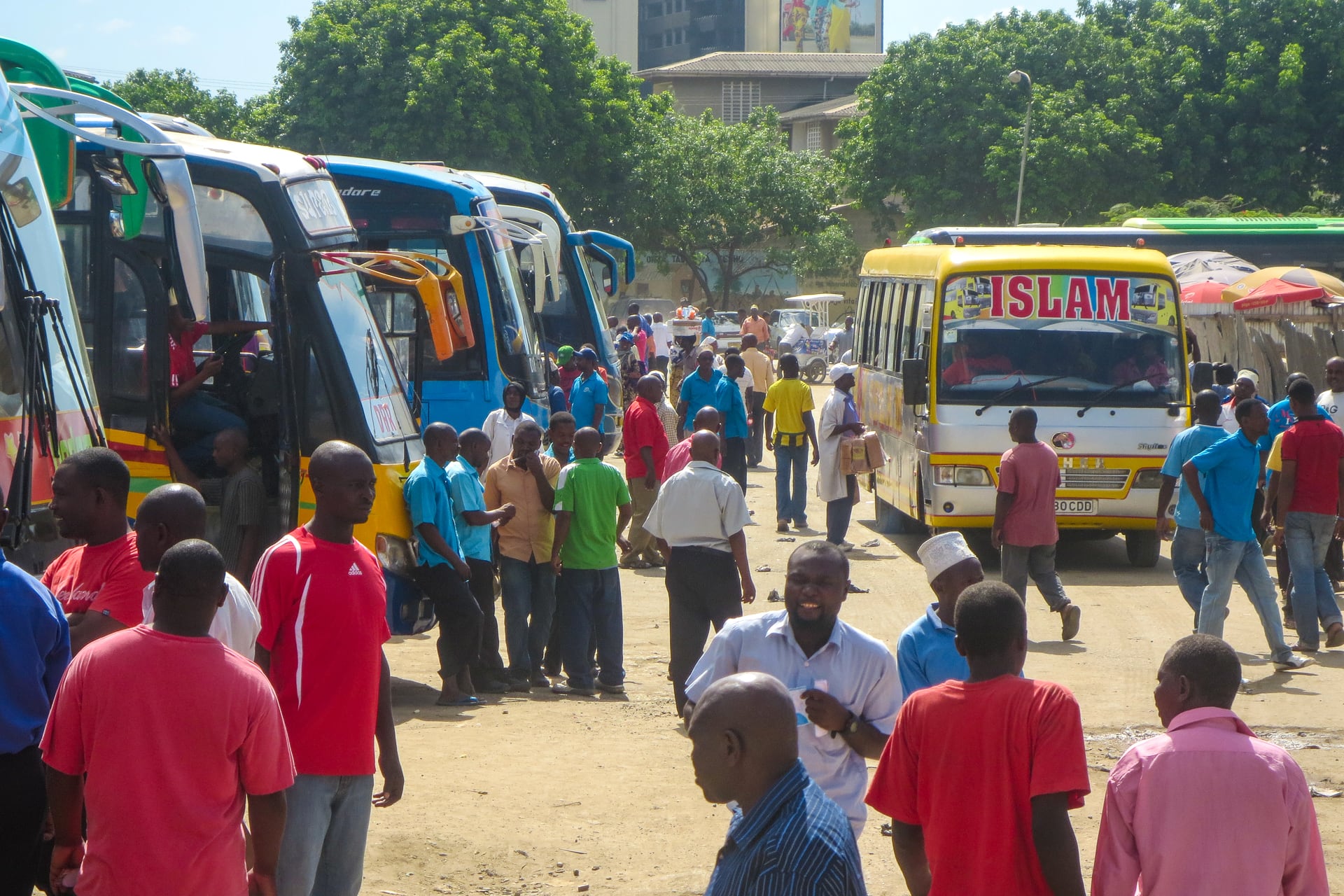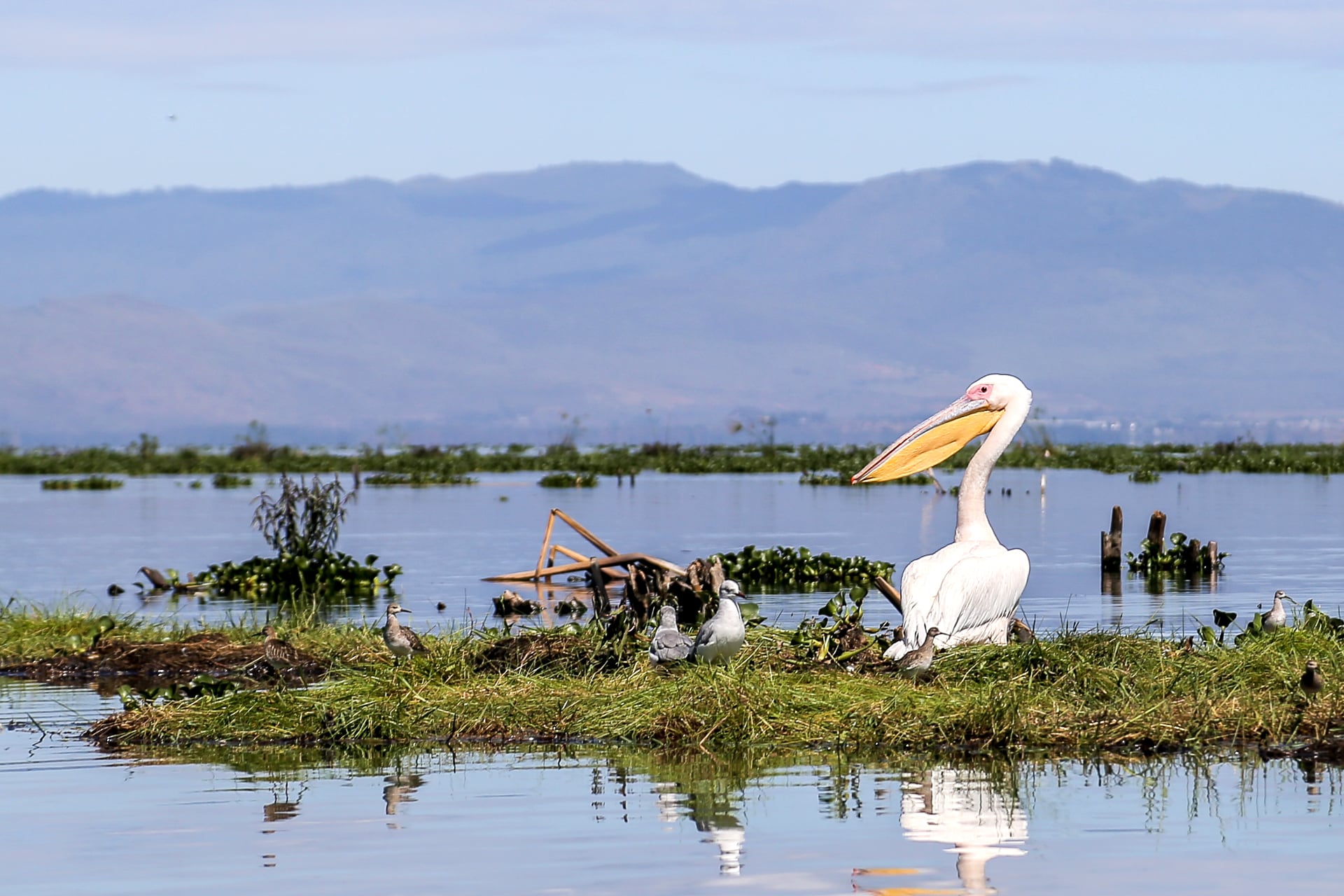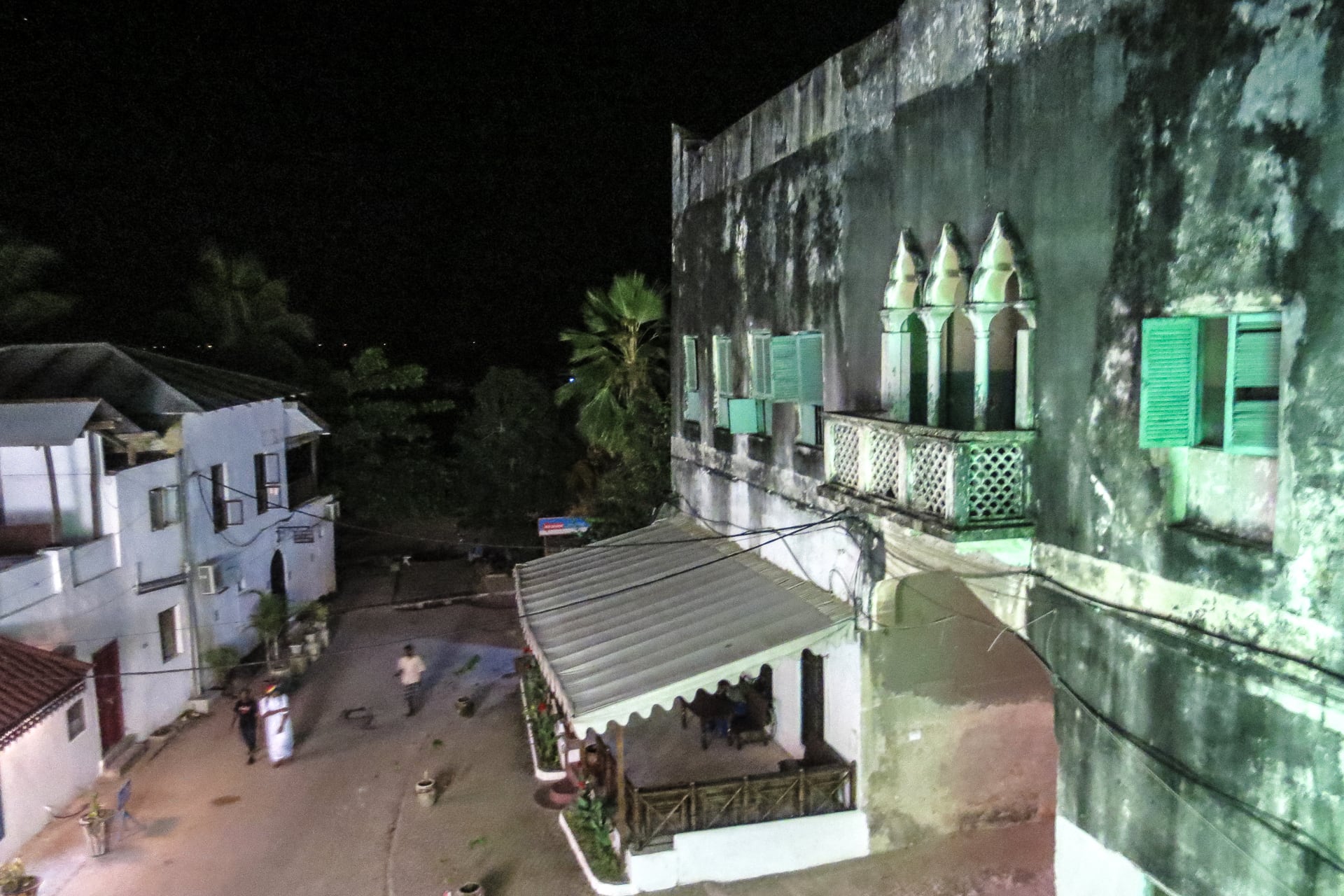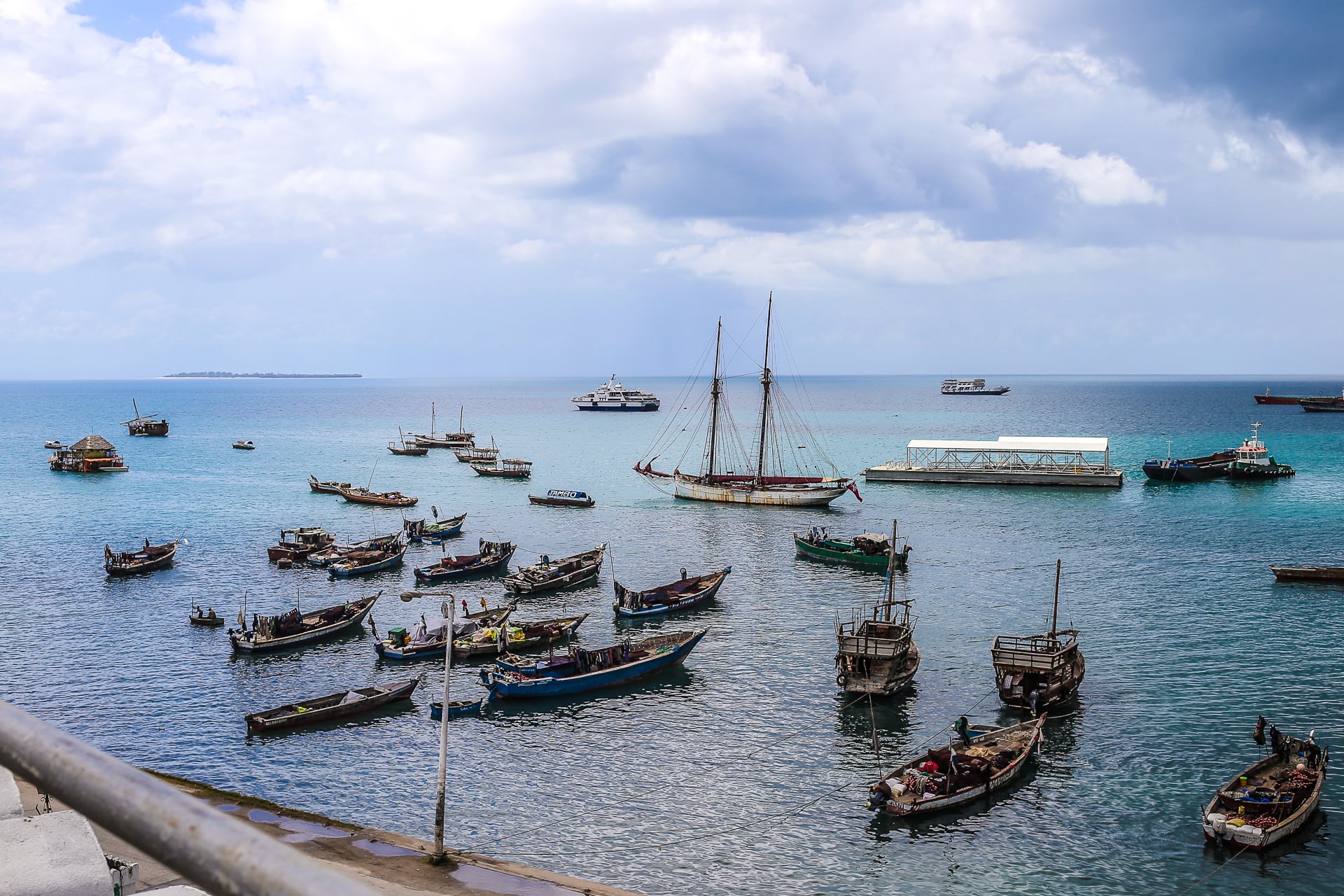After two relaxing weeks on Zanzibar, we finally returned to Dar es Salaam, Tanzania’s largest city and transit hub. We found ourselves at a crossroads, wondering if anything could possibly top our time on Zanzibar.
With still over a month of our trip left, we weren’t sure how much rugged over-landing we had left in us. Getting around East Africa is completely different than getting around East Asia, and we knew this going into the trip. What we didn’t fully appreciate at the time was how much 12 months in Belize, followed by four months backpacking up through Africa would wear on us both physically and mentally.
Originally, the plan was to travel up the coast to Tanga, then Mombasa and back to one of my favorite places, Lamu. But the security situation was still not great, many of the guesthouses and restaurants were still temporarily shuttered, and if we didn’t fly, Lamu meant many more long days on buses and matatus slowly making our way up and back. We ultimately decided to take Lamu out of the equation.
At one point in Dar we even floated the idea of moving up the return flight through Istanbul and spending the month in Turkey. However, it was November now and likely not ideal weather for exploring Turkey’s interior.
What we finally decided on was to reign in the miles significantly, focus on a few key destinations and consolidate our travel days to spend more time at those destinations. We had friends we could stay with in Nairobi and Kampala, which was also a deciding factor — after months on the road, a friendly face and a homey environment generally trumps even the swankiest accommodations.
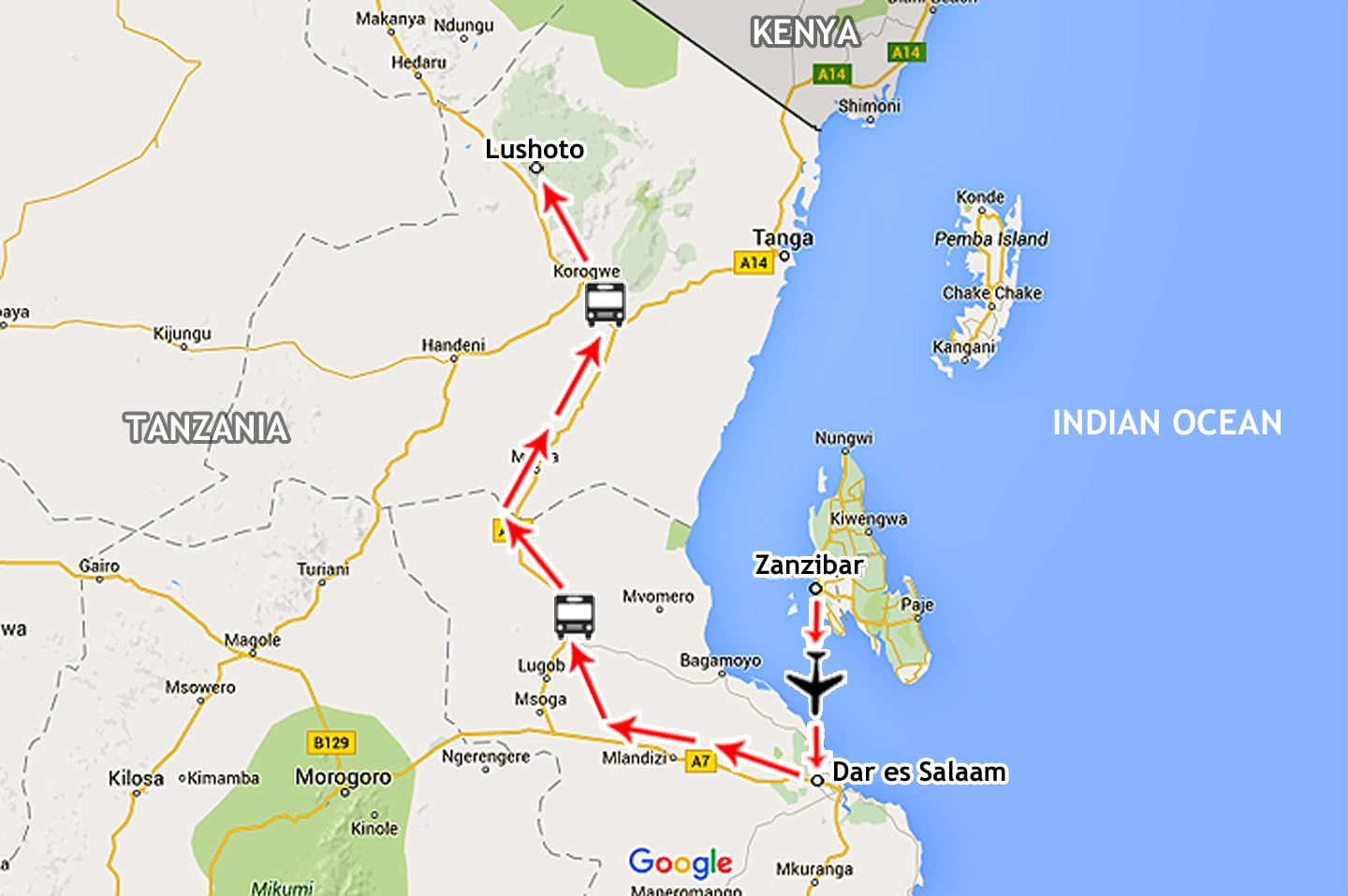
While we were tired of long-haul bus rides, we weren’t yet tired of having new adventures. In the course of reading up on various places of interest in Tanzania, I came across the Usambara Mountains and Lushoto, which happened to be right off our route from Dar to Moshi. After some additional online research, I came across a Tanzanian guide, Said Salim, with fantastic reviews offering exactly what we craved at the moment: A budget 4-day, 40+ mile trek through some of Tanzania’s most stunning landscape, through traditional villages largely untouched by tourism. I emailed Said regarding his availability and within a few hours we were all set. We’d have two nights in Dar before heading to Lushoto.
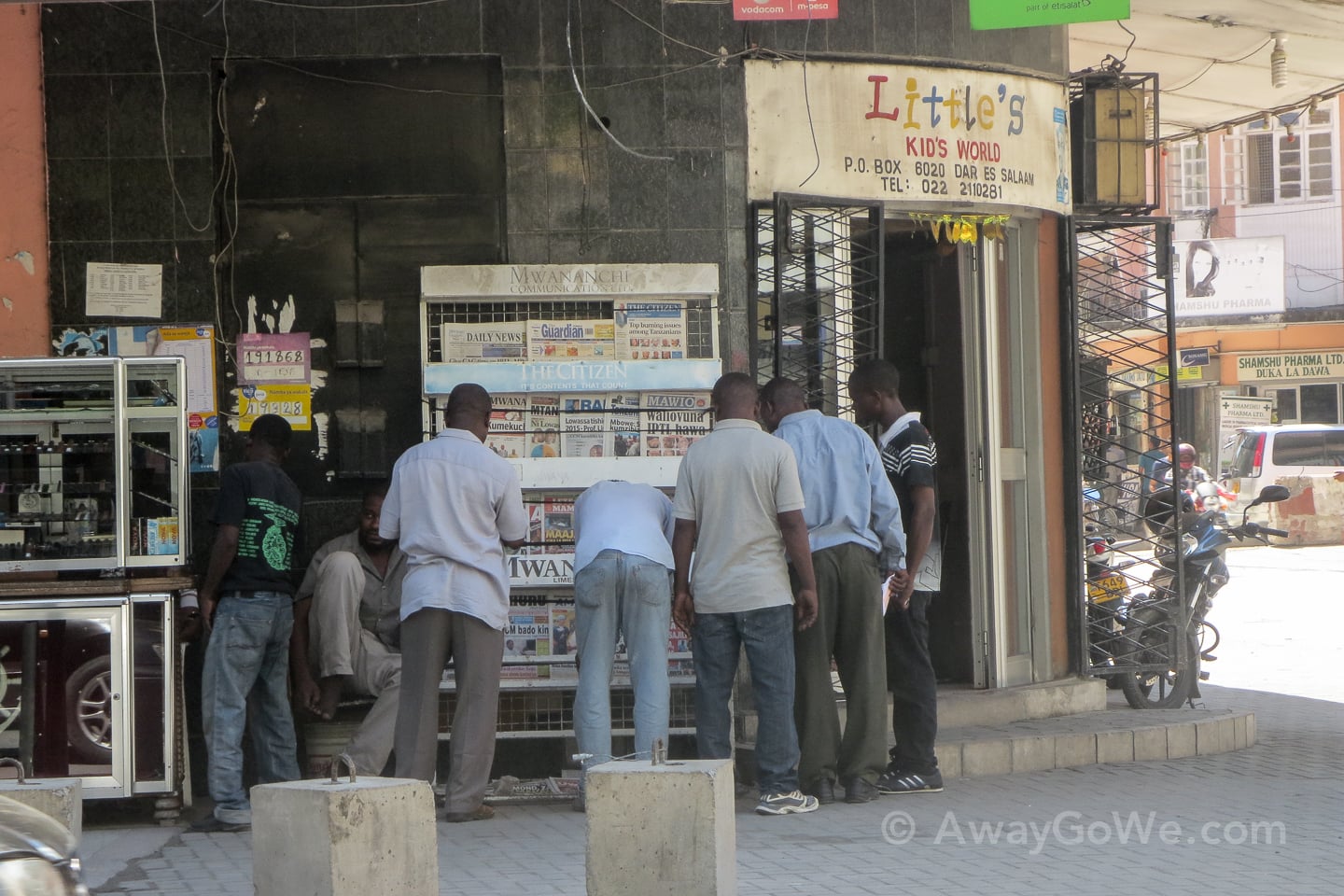
We had heard some pretty scary stories about Dar from other travelers and read even scarier stuff in guide books and online. Owing to this, we weren’t exactly looking forward to being “stuck” in Dar for a few days. We would have been pleased to have been able to fly in and take a bus out of town directly from the airport, given the chance.
In the end, we were very glad we ended up, not only having the time to devote to this vibrant, multicultural, and historically significant city, but to have had the gumption to stay at Safari Inn, more or less in the thick of things, and get out and about and see the city!
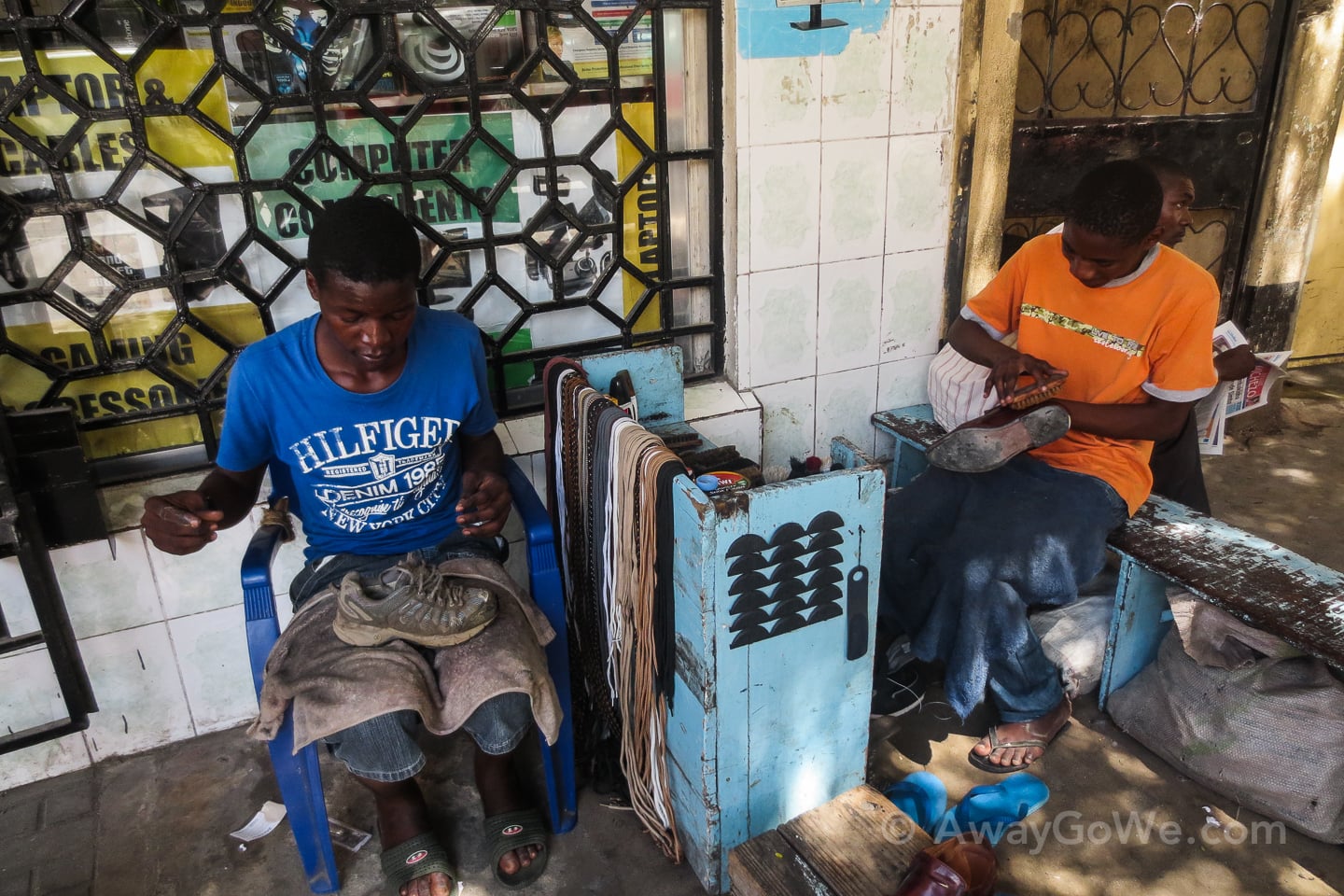
In doing so, we met some of the friendliest people we had come across on our entire trip. It’s easy to get jaded while traveling. Paranoia sneaks in when you least expect it. You stop engaging with people for fear that they might try and take at advantage of you (which is certainly not unfounded). And don’t get me wrong, Dar had it’s fair share of hustlers and annoying taxi drivers, but we had to remind ourselves that not everyone was on the make all the time. Still, the stories lingered in the back of our minds. So, we engaged, but cautiously, and had some memorably interactions as a result.
One of the most memorable involved the two young guys who repaired Lori’s worn out hiking shoes. Anyone who knows Lori and me, knows we generally invest in quality stuff, and then run that stuff into the ground, far past the point where any sane individual might have relegated the item to the waste bin a very long time ago.
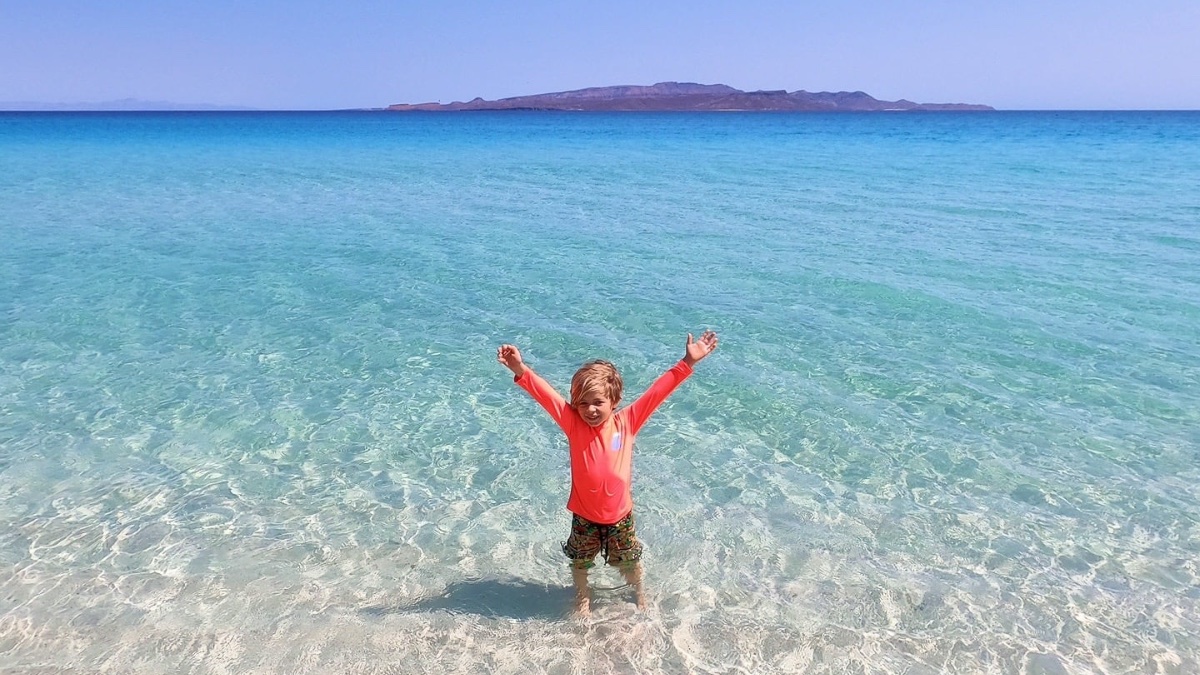
Lori adored her waterproof trail runners. They had had a long and full life over four continents and served her well. By Dar, however, the sole was separating from the heal, and the toes had nearly worn through. Given that we were due to trek 40 miles beginning in two days and the only alternate footwear Lori had were her sandals, something had to be done. Most people probably would have visited Bata (the big shoe store chain) or the local market and bought some cheap boots to get through the month, but not Lori. From past experience, we knew that cities like Dar are full of shoe repair people that can fix just about any issue. So, after breakfast, Lori threw her shoes into her bag and we set out to the right person for the job. As it turned out, we didn’t have to look any further than the next street where two young men were actively engaged in their small operation.
We exchanged a little broken English/Swahili (and a lot of gestures) before pulling out and placing the shoes before the two men, who both let out audible gasps at the sight of the pitiful footwear, which stood in stark contrast to the stylish leather dress shoes waiting in their queue. One of the men gingerly lifted the right shoe and began to examine it like one might examine a sick kitten. The cobblers took a few moments presumably to discuss their game plan (or Lori’s mental state), their eyes full of sympathy (or perhaps embarrassment). At one point, a panhandler even strolled by, exchanged a few words in Swahili with the young cobblers, and proceeded to scold Lori for not just going and buying a new pair of shoes, gesturing all the while to his own bright white and impeccably clean sneakers, before proceeding to ask a nearby Tanzanian woman for change and moving on.
After a long, pensive pause, one of the cobblers looked up from the train wreck before him and said with a bright smile, “it can be fixed.” Fingers crossed, we left the shoes with the young men and ventured off into downtown Dar es Salaam.
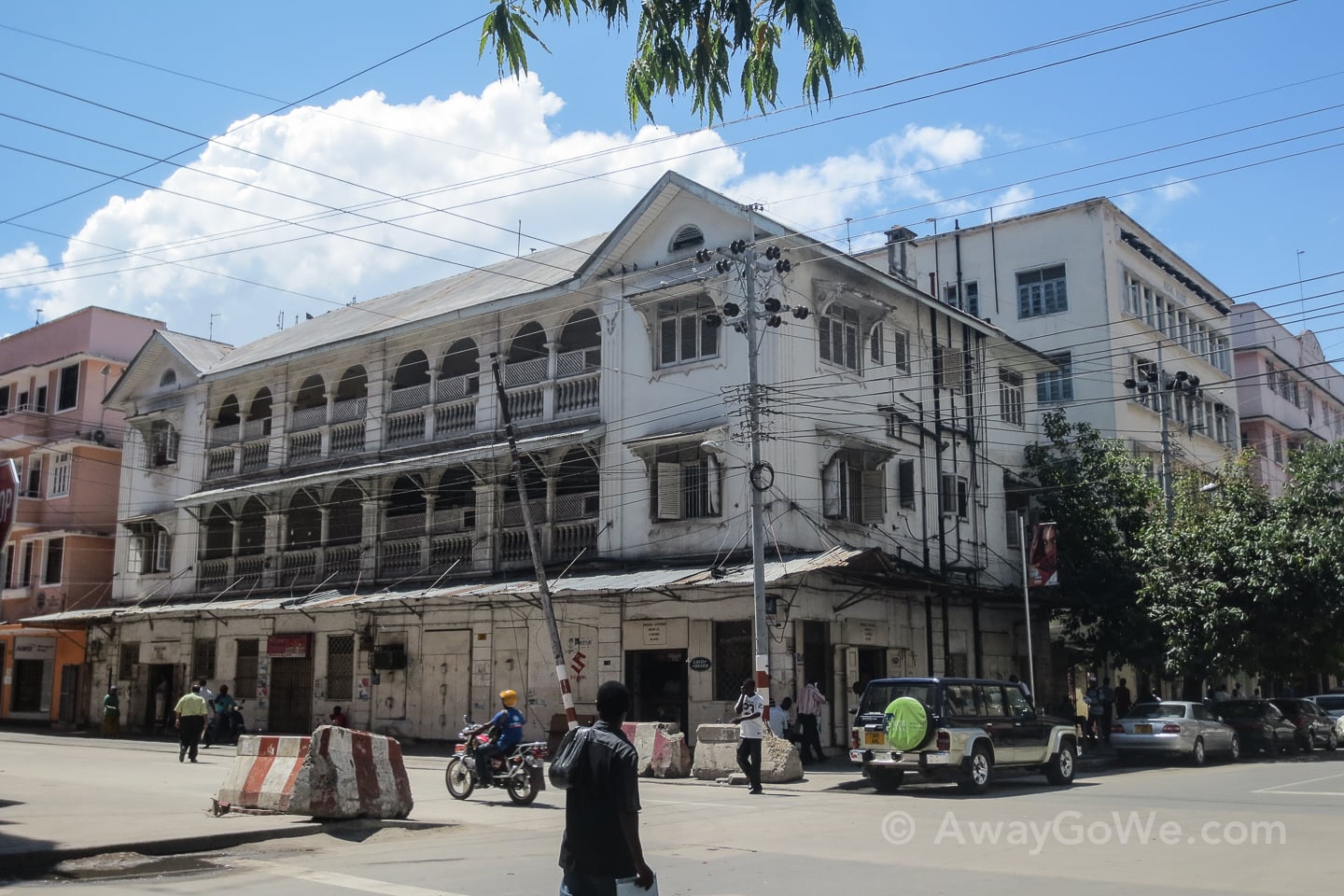
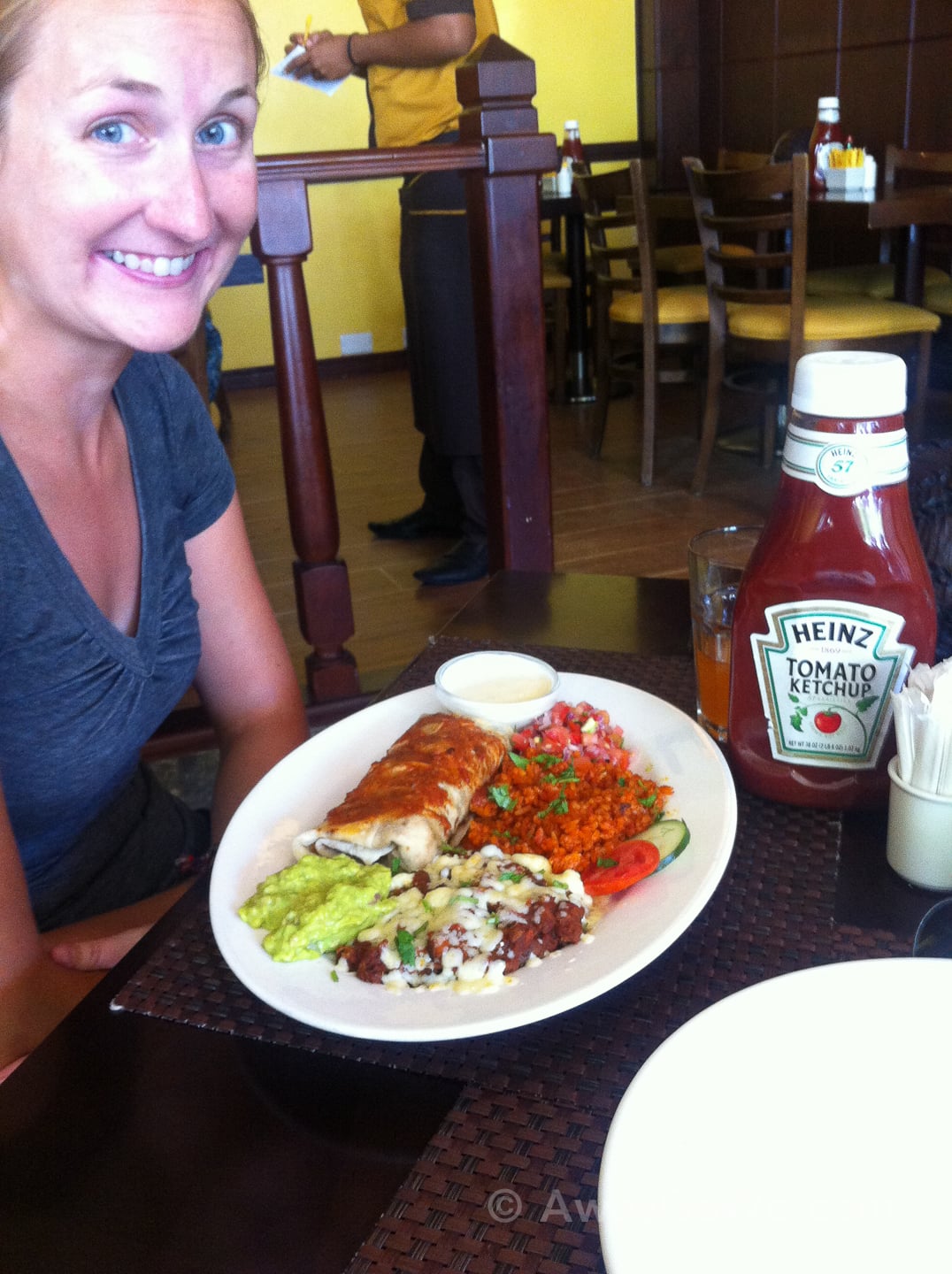
Ironically, one of the highlights of our time in Dar was having Mexican-style burritos at a little expat-oriented cafe (Mokka City), as we hadn’t really had anything like that for months.
Other highlights of Dar including the National Museum, searching dozens of bodegas for travel-size shaving cream, and just strolling about the streets, peering into mosques and watching street life unfold. That night, we discovered that some of the BBQ joints had placed a number tables out on the street on one particular block, which had drawn a significant crowd. We followed a number of people to Mozee BBQ, placed a kebab order and enjoyed the evening atmosphere. The food was excellent.
After dinner, we both agreed it was time for a beer. However, being a largely Muslim city, beer is not easy to find in Dar. Earlier, we thought we had seen a Kilimanjaro beer sign on one of the buildings a few blocks away and went to go check it out. We followed the signs for “Tiffany Club” through a lobby and to an elevator. We boarded the elevator and selected the “Tiffany Club” button, arrived at our floor and and exited into the elevator lobby, which looked a lot like an empty conference area leading to a few dark and empty conference rooms. We peeked around for a few moments looking for signs until a man who appeared to be some sort of server emerged from an unmarked door. “Tiffany Club?” we asked? The server nodded and we followed him back through the unmarked door into a largely empty room with a number of high tables, a dance floor, and a long bar. The server rushed around flipping switches and all of a sudden the bar came to life with music, mirror balls and funky disco lights. We considered leaving, but were put at ease when two well-dressed women entered and asked for a couple of drinks. So, we stayed and enjoyed a large Kilimanjaro and two glasses before calling it a night.
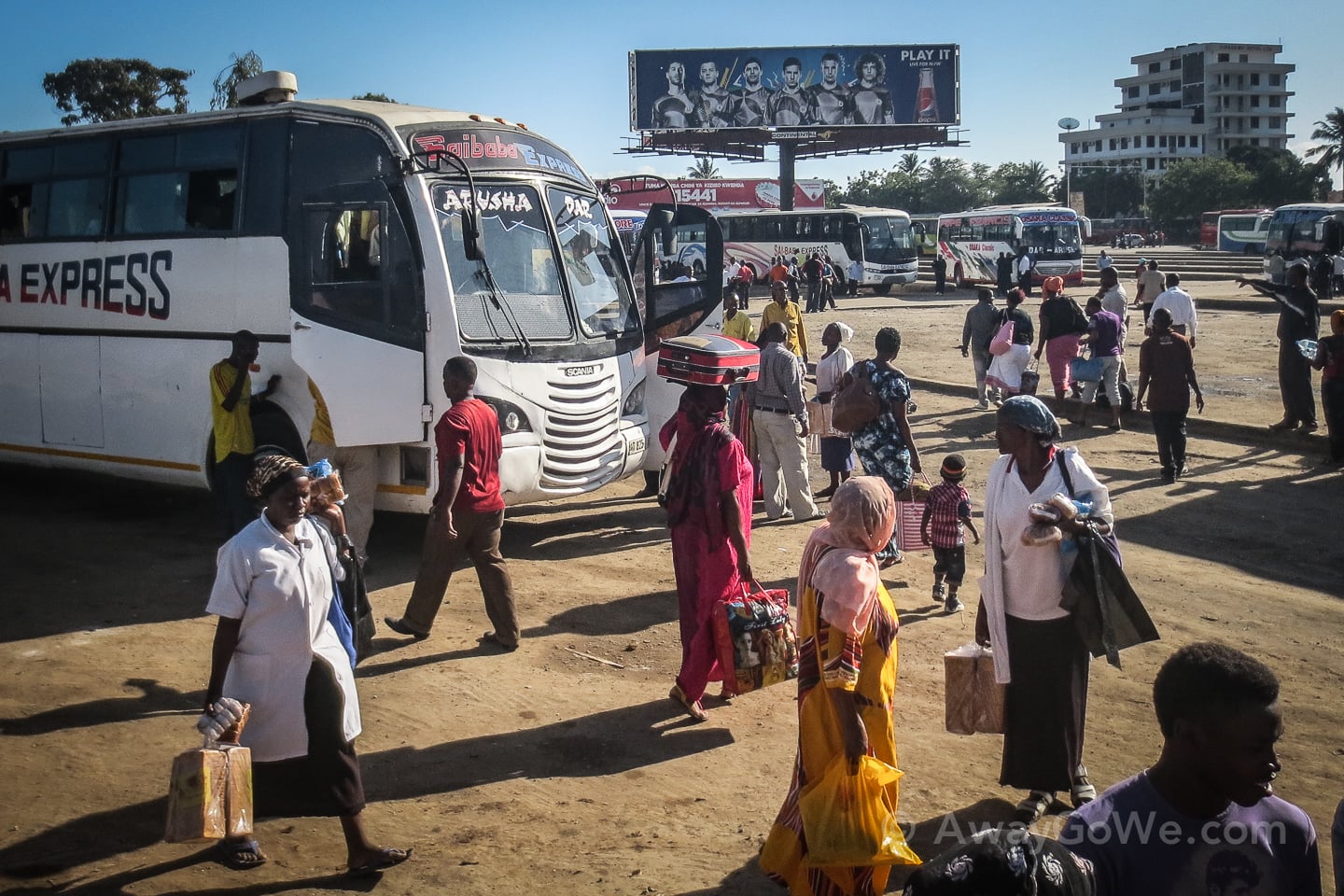
In the morning, Lori and I collected her shoes — expertly mended, though even the cobblers admitted their handiwork was only temporary, but enough to last through the rest of the journey — and grabbed a taxi to the Ubungo bus terminal outside of town. “Grabbing” may not be the most appropriate term in this case, but rather “carefully procured.”
Fortunately, we ended up having an enjoyable time in Dar, save for the mild inconvenience of the odd tout or taxi driver (certainly nothing like the major headache of India in this respect). Yet, we hadn’t exactly been looking forward to Dar given the first-hand stories related to us involving muggings, shake downs, and terrifying scams involving taxis.
The story that stuck with us the most involved two friends who had backpacked through dozens of countries around the world hailing a taxi in Dar at night (given that nearly everyone seem to advise travelers that they should not walk more than a few blocks in Dar after dark) only to have two other men climb in and demand at knife point that they withdraw the limit from all of their debit cards and as many ATMs as will let them before leaving them in a random location.
For this reason, we made sure to be extra careful in Dar (and other large cities in East Africa throughout our travels) in hailing a cab. If you don’t already have a phone number of a reputable driver that you’ve used before, the best practice seems to be having your guesthouse arrange the cab for you (either in person or calling the guest house). Obviously, you could still run into issues going this route, but it’s a much better bet than a Mazungo (or even an affluent looking Tanzanian) standing on the roadside and hailing a random vehicle. The color of the license plate will also give you an indication (in theory) as to whether the vehicle is a private (yellow) or registered taxi (white).
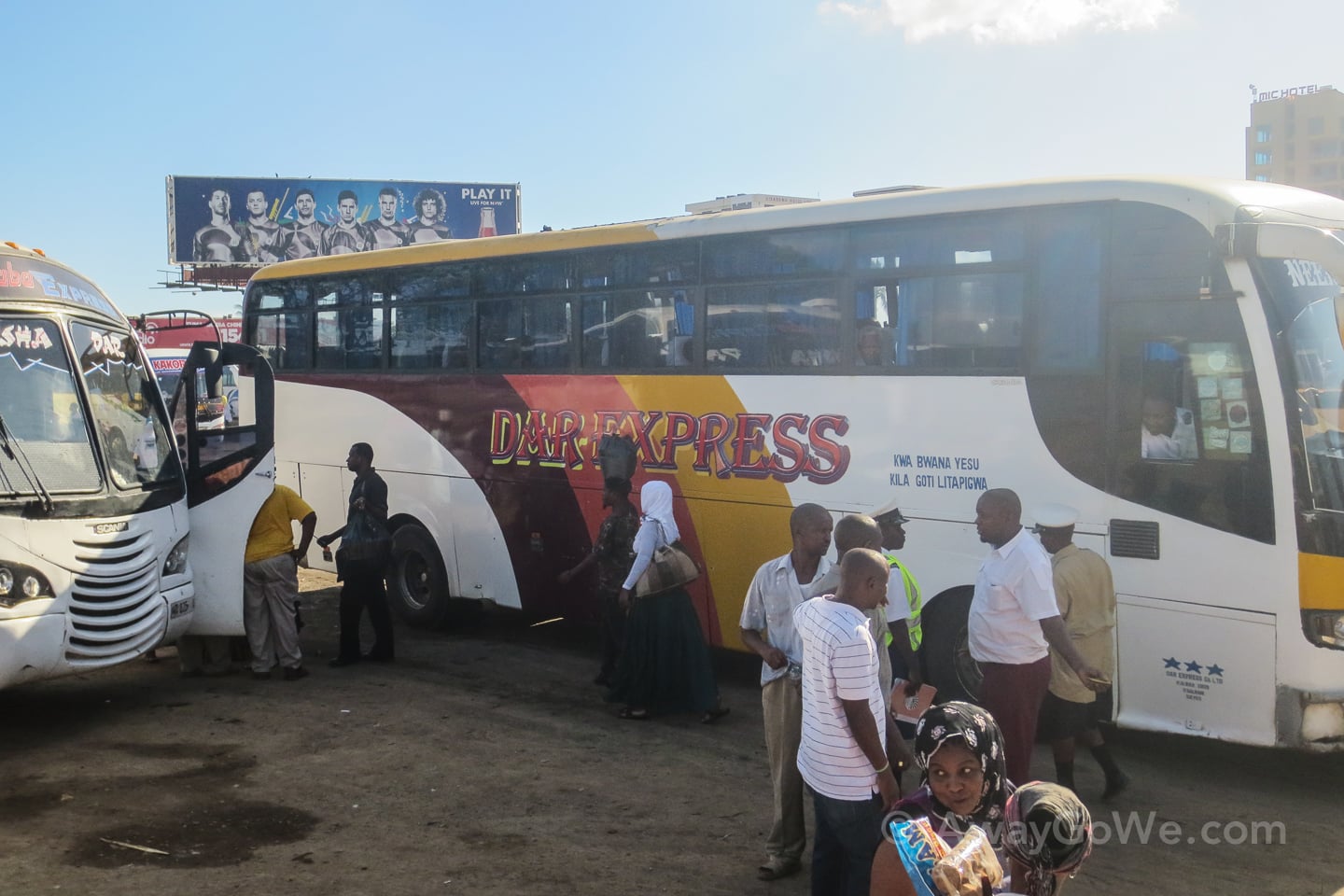
As is often the case, the taxi ride from our guest house (US$12 — 5 miles down Morogoro Rd.) to the bus station cost almost as much as the bus ride from Dar to Lushoto (US$17 (for 2 pax) — 211 miles).
We thought we had a good game plan, which had generally served us well. We would walk with a purpose right through the front gates, quickly spot our bus company and make a beeline, all the while avoiding the touts who would undoubtedly spot us and try to sell their “services” for an exorbitant fee. We quickly learned, however, that the task of finding our bus would prove much more challenging than originally anticipated, as we stepped into a sea of dozens upon dozens of buses of all shapes and sizes with no discernible system or organization.
Some buses were clearly marked with their destinations in the front windshield, while others were not. We wanted the Dar Express to Lushoto, but quickly found that the Dar Express buses weren’t all together, and the Lushoto-bound buses weren’t necessarily together either. All the while we were trying to fend off touts insisting they knew what we were looking for and that they could help. Not wanting to be total jerks and having no idea where our needle in a haystack might be, we caved.
Sure enough, two young and particularly enterprising touts led us directly to our bus, but we paid dearly for it. I gave them what anyone in the world would have considered a fair tip, the equivalent of a few U.S. dollars for their 15 seconds of assistance — but they were none too pleased by this and wanted more…far more. “Give me fifty dollar!” one of them said. My knee-jerk reaction to this was a spontaneous burst of laughter. I mean, come on. $50? I offered the 5,000 shilling bill again, but they wouldn’t take it. The Dar Express conductor barked something at them in Swahili and then asked us for the money for our tickets. I gave up on the touts, purchased our bus tickets and we boarded the bus. Things should have ended there. But they didn’t.
We were the first ones on the bus and when the conductor stepped away for a moment, the two touts — to my utter astonishment — boarded the bus and demanded “fifty dollar! fifty dollar!” Really? In all of my time living and working and traveling through Africa, Latin America and Asia, I had never encountered such persistence. Touts rarely concern me anymore, but I can honestly say by this point Lori and I were starting to feel uneasy. I offered the 5,000 bill again, but they wouldn’t take it. Surely no one — foreigner or otherwise — would have willingly given these kids more than a couple of bucks. Not even in India would touts have been this aggressive, and that’s saying a lot!
So we played the ignore game. I turned to Lori and starting a conversation while they stood their awkwardly. I felt bad for them. Or was that my Western guilt creeping in? Nah, these guys were jokers. Persistent jokers, though.
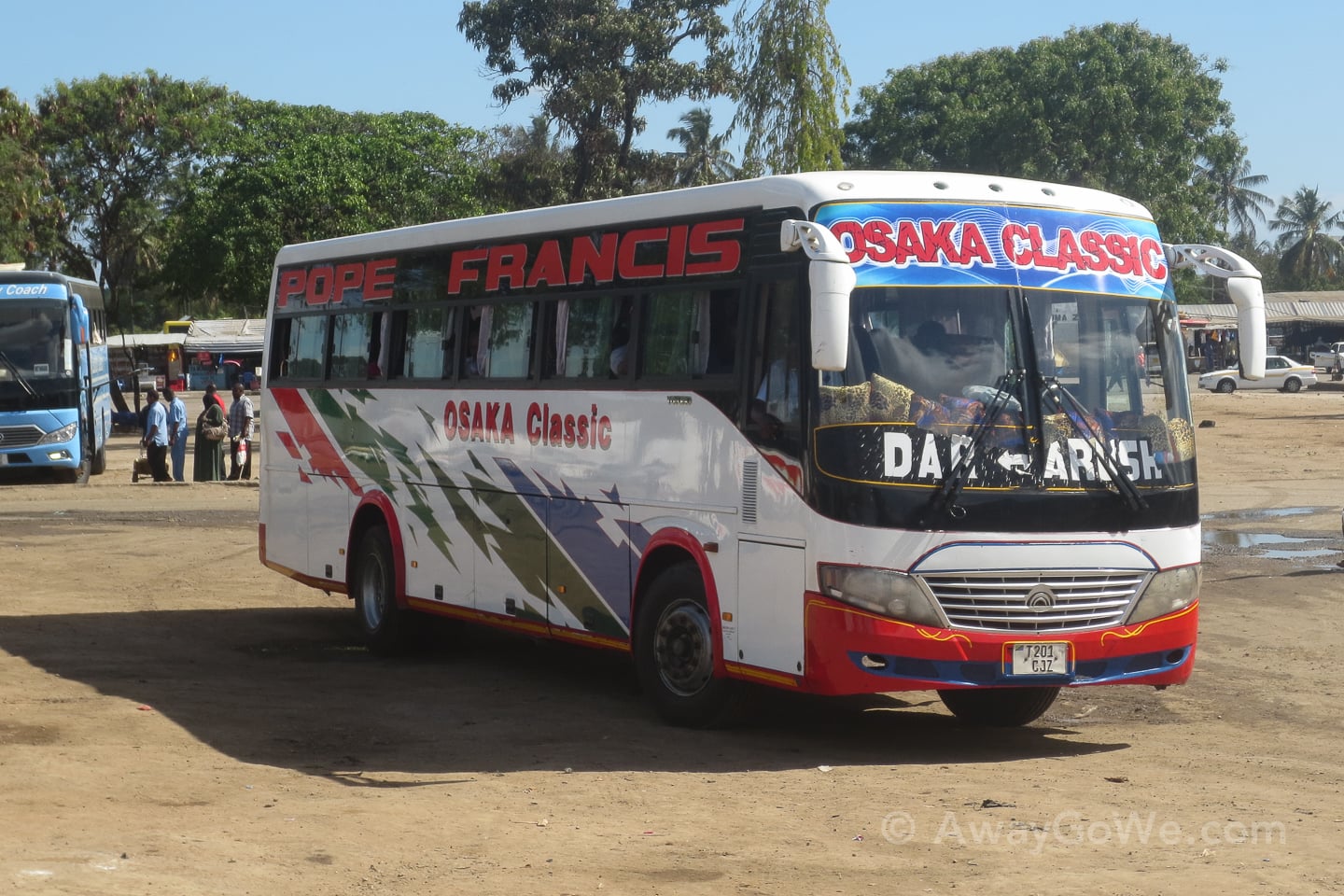
Eventually, they gave up, as other passengers boarded, and after a [long] while we were on our merry way.
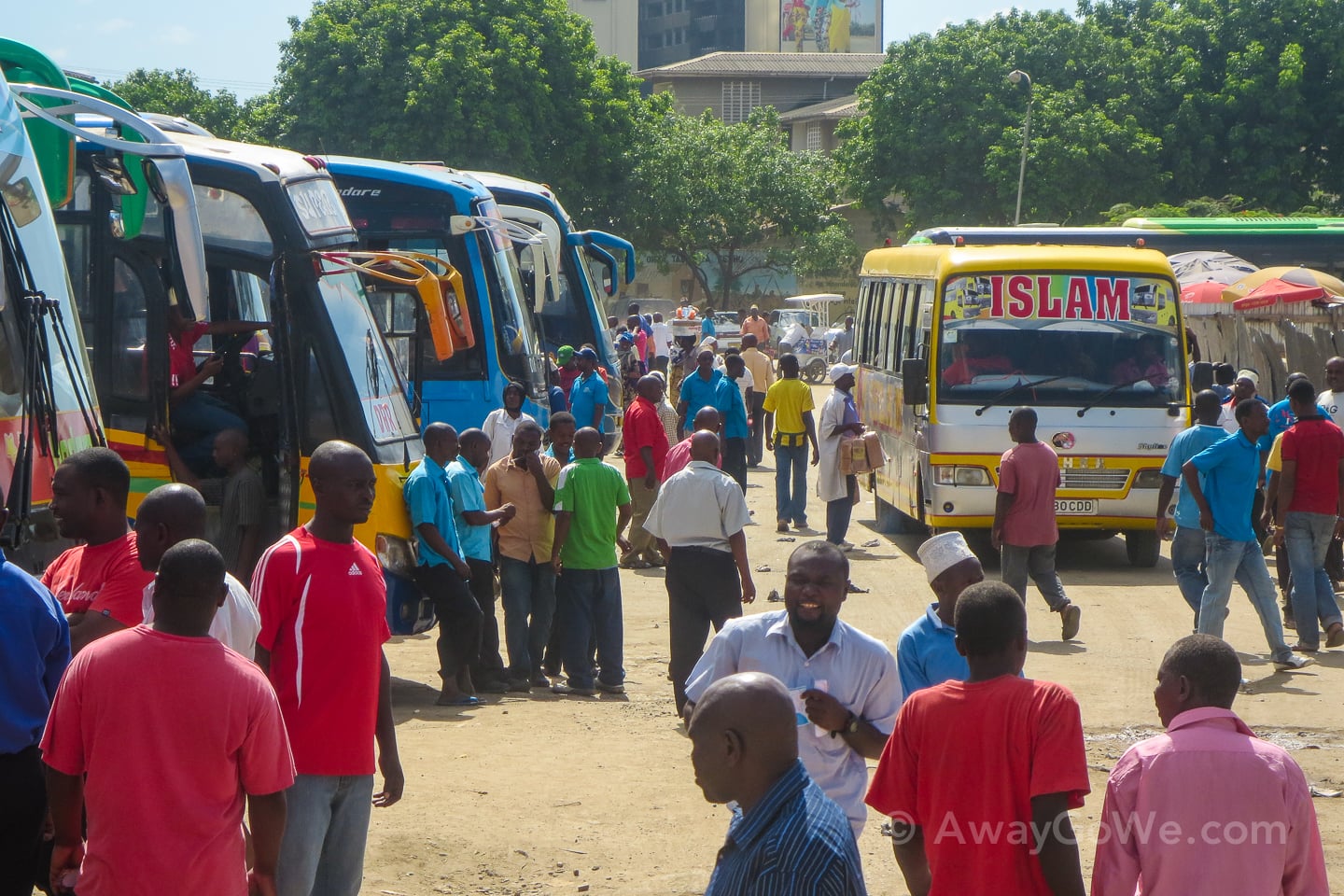
Despite the two touts, we enjoyed our time in the Ubungo Bus terminal, watching Dar life unfold and the uniquely decorated buses come and go. We also loved the fact that a “Pope Francis” bus was equally at home in the station as the bus with “Islam” emblazoned across it’s windshield.
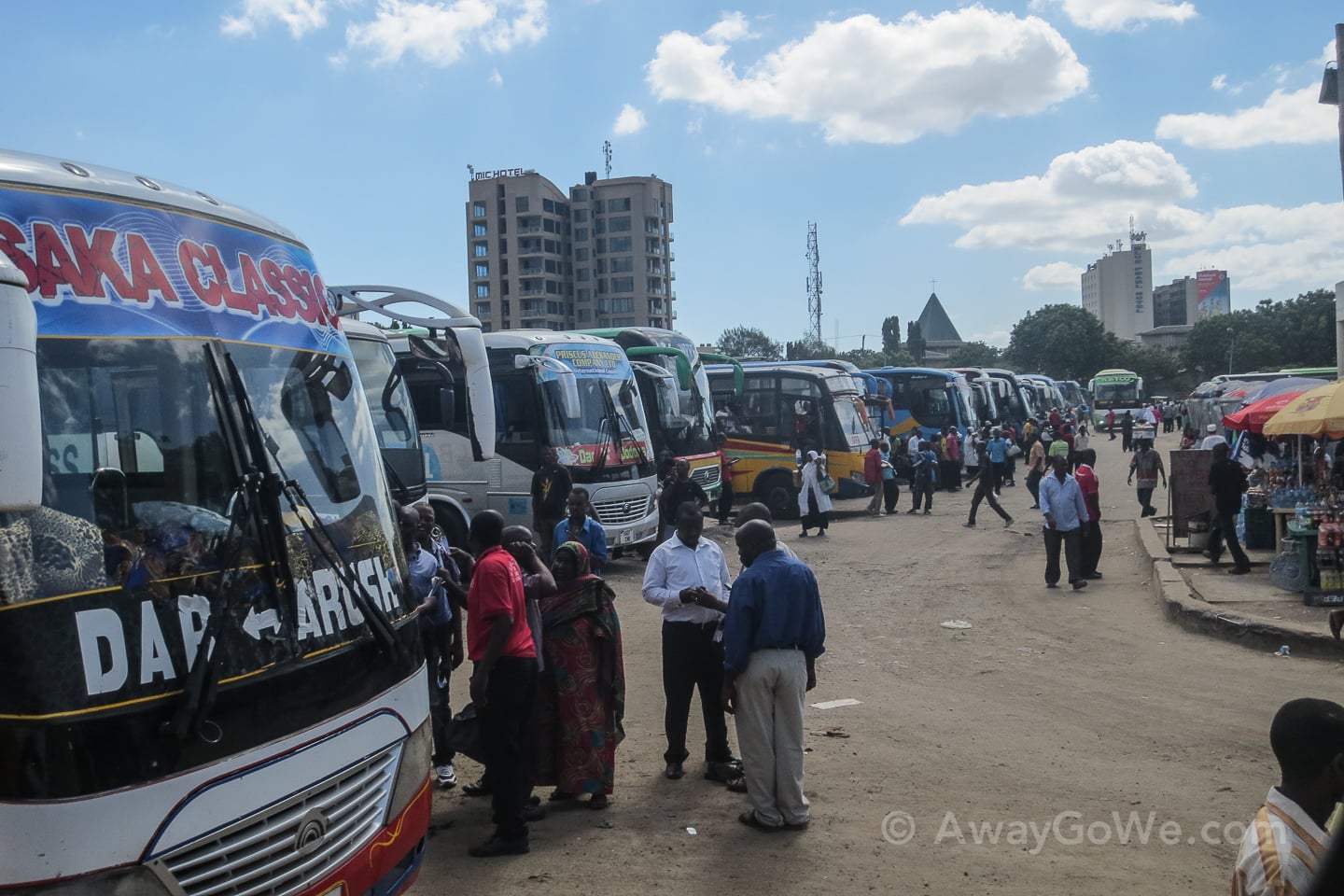
The drive to Lushoto was pleasant and without incident, with really stunning landscape.
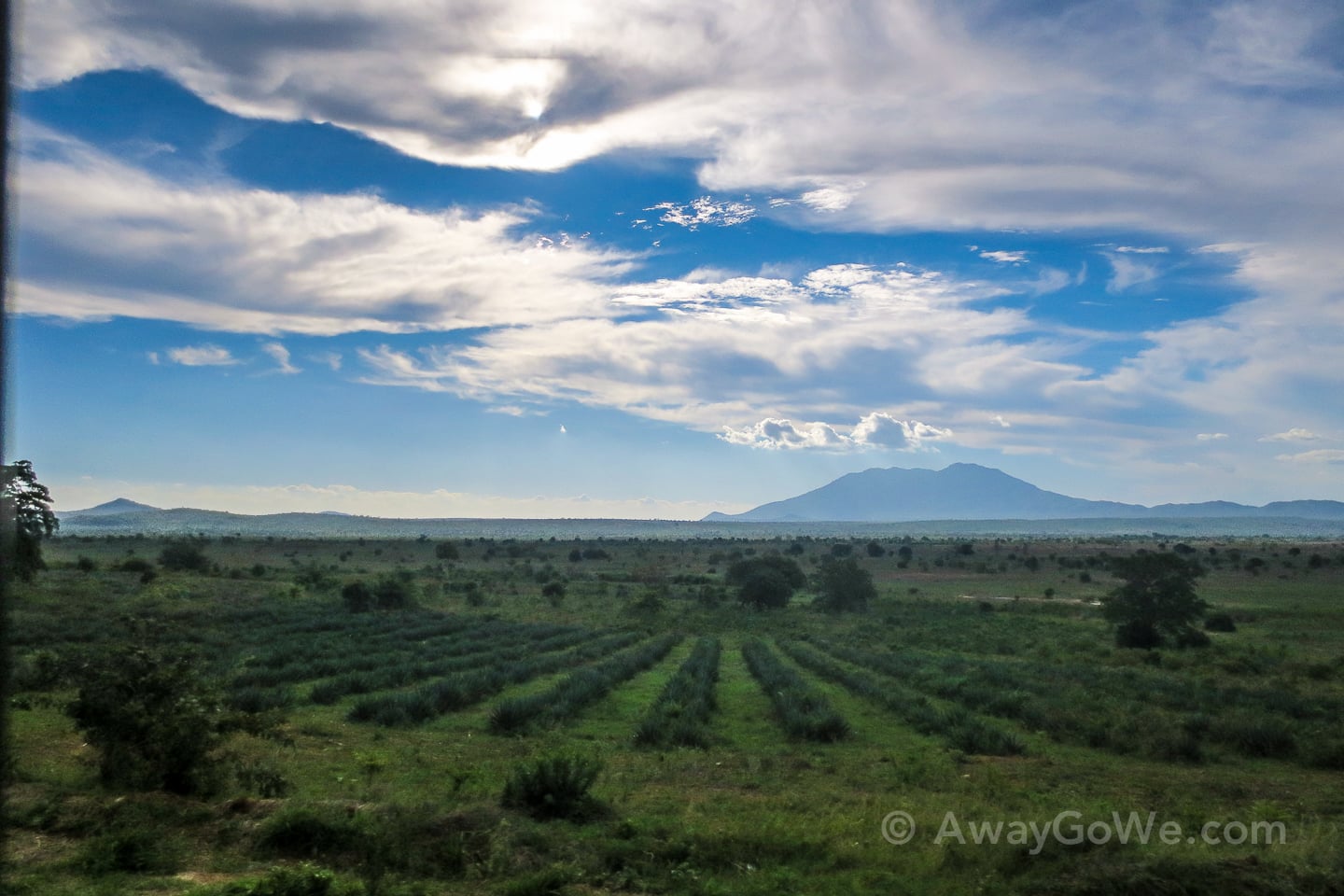
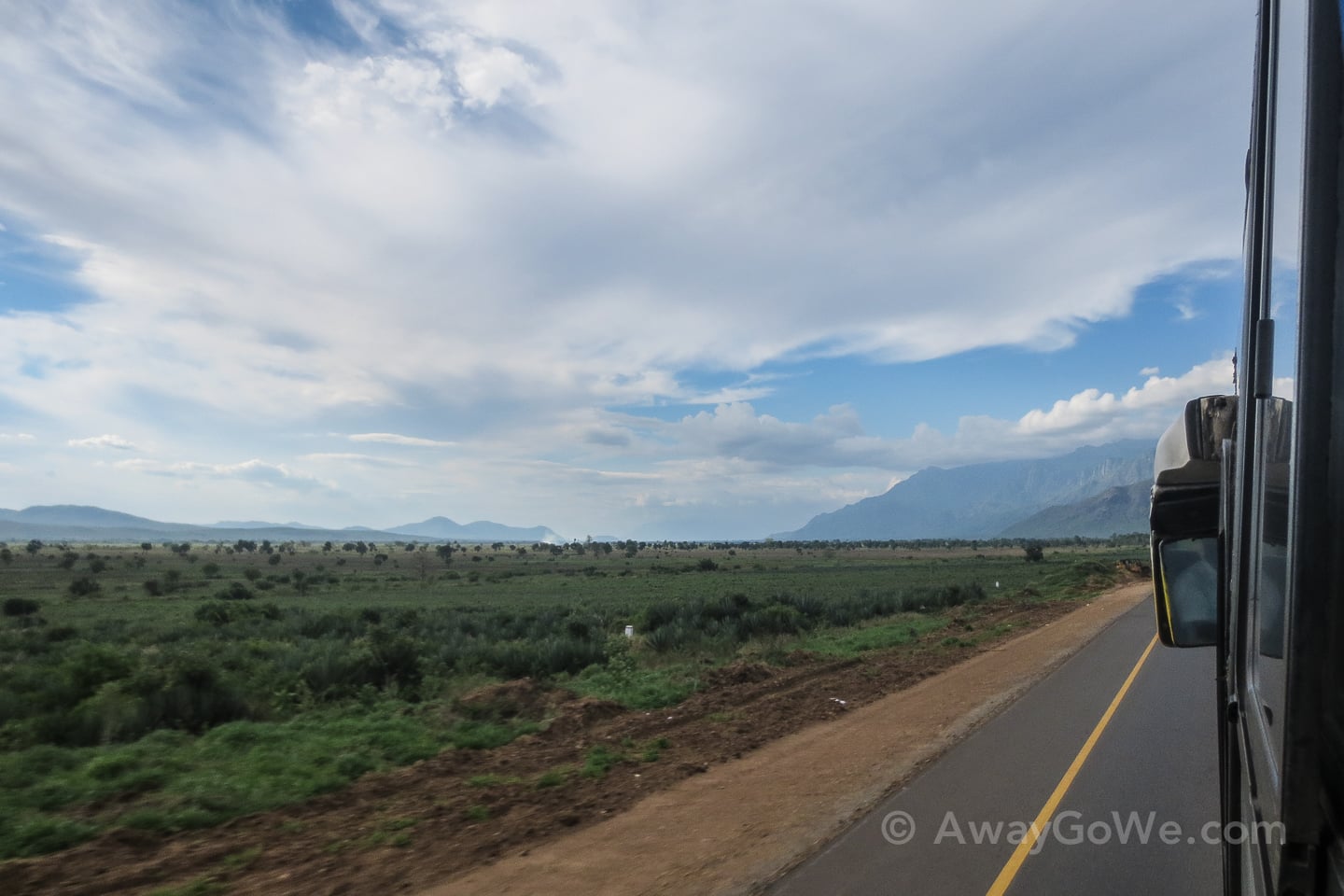
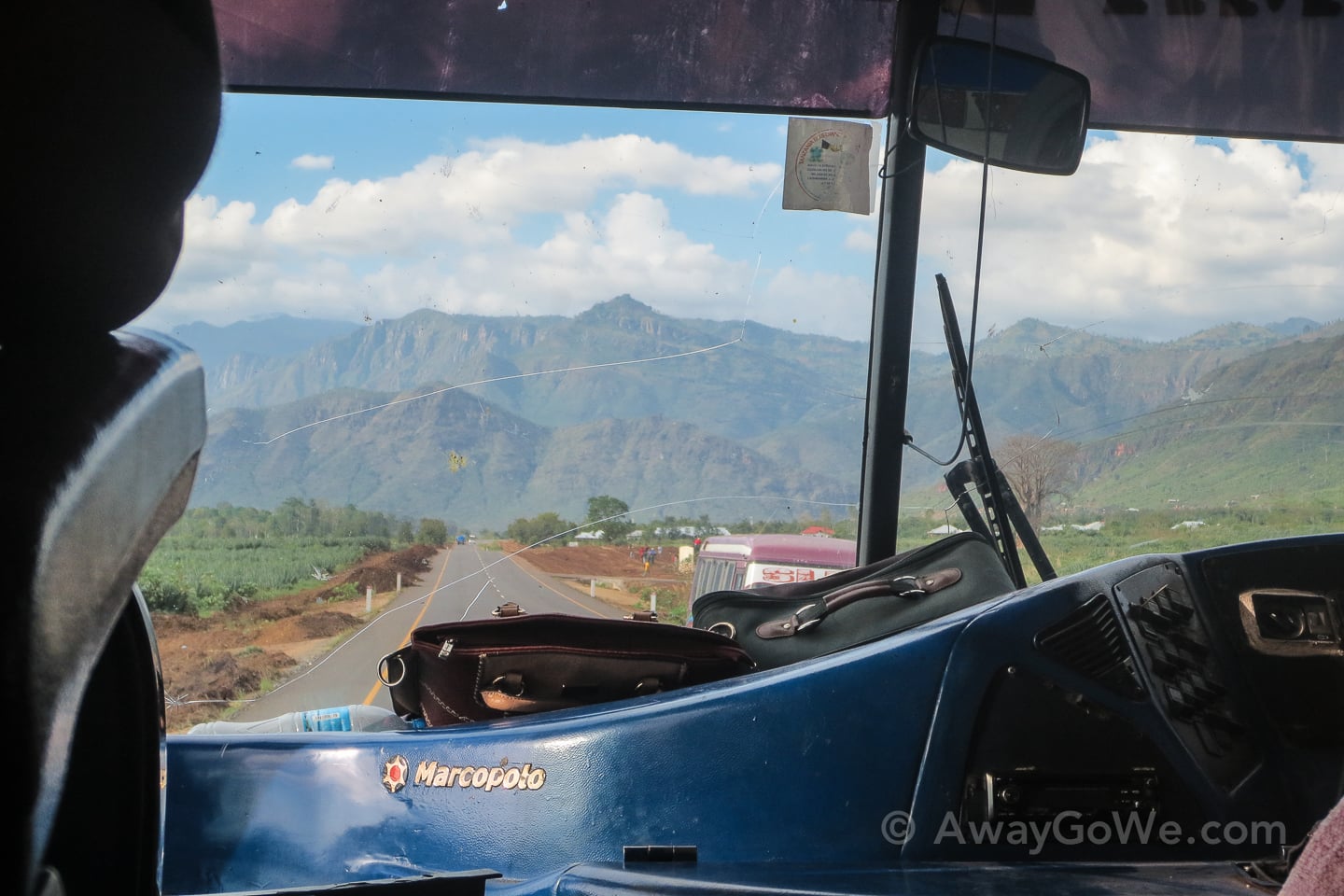
At Mombo (not to be confused with Mambo), we left the main highway and headed up into the mountains. The views were amazing, and the ride, far less harrowing than many mountain journeys we’ve taken–quite peaceful on the whole. And best of all, the bus had a female conductor! The first we had every seen in all our travels.
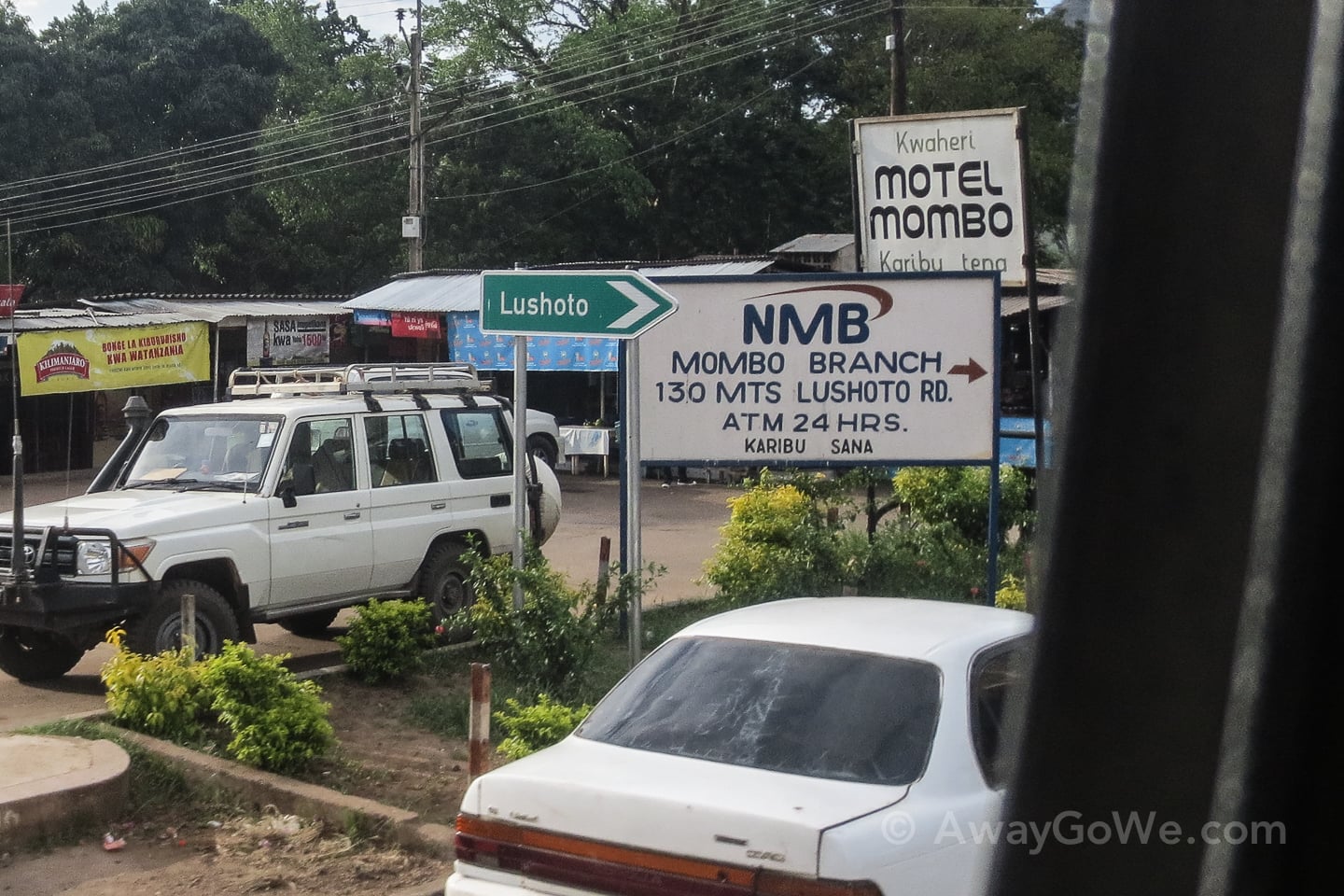
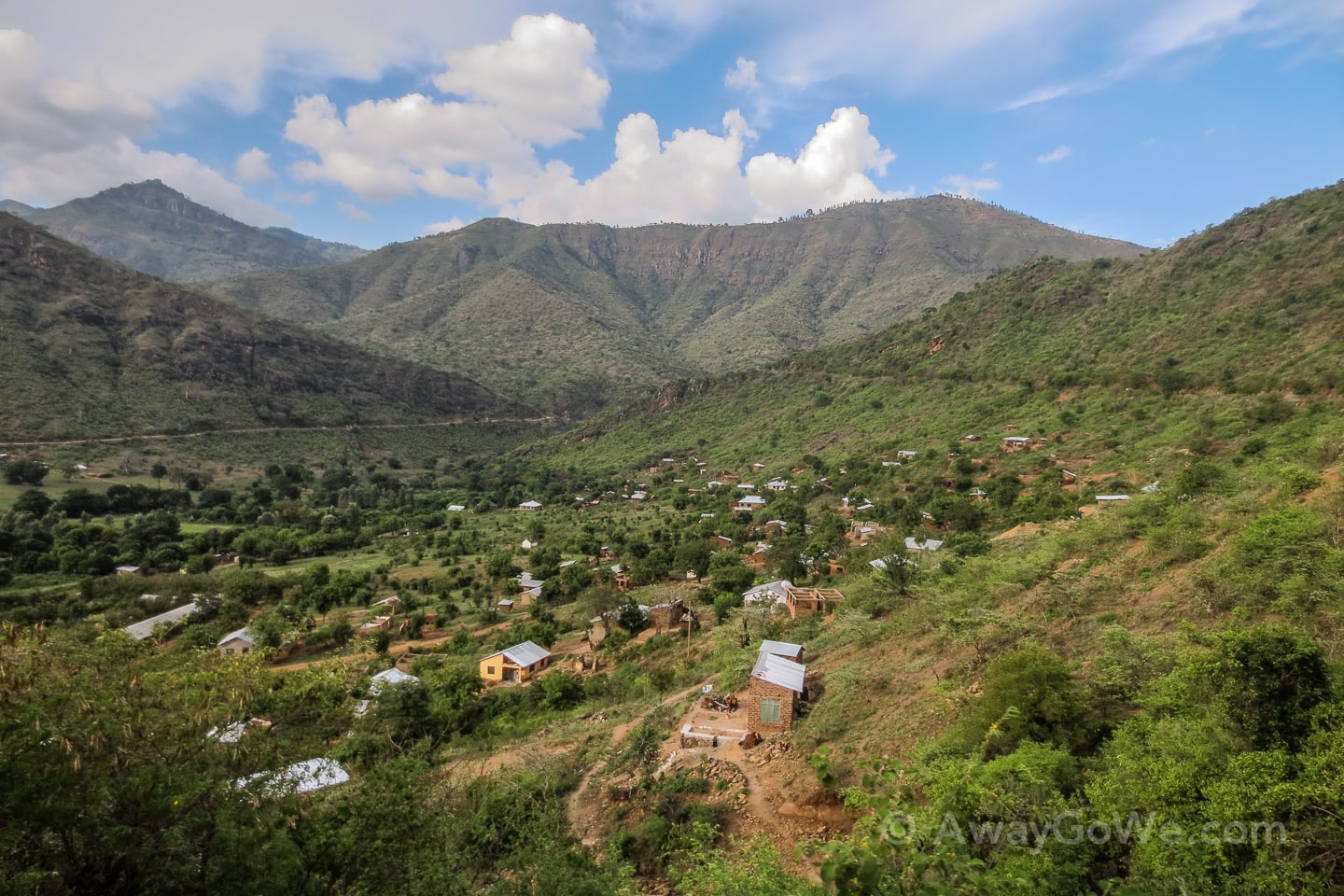
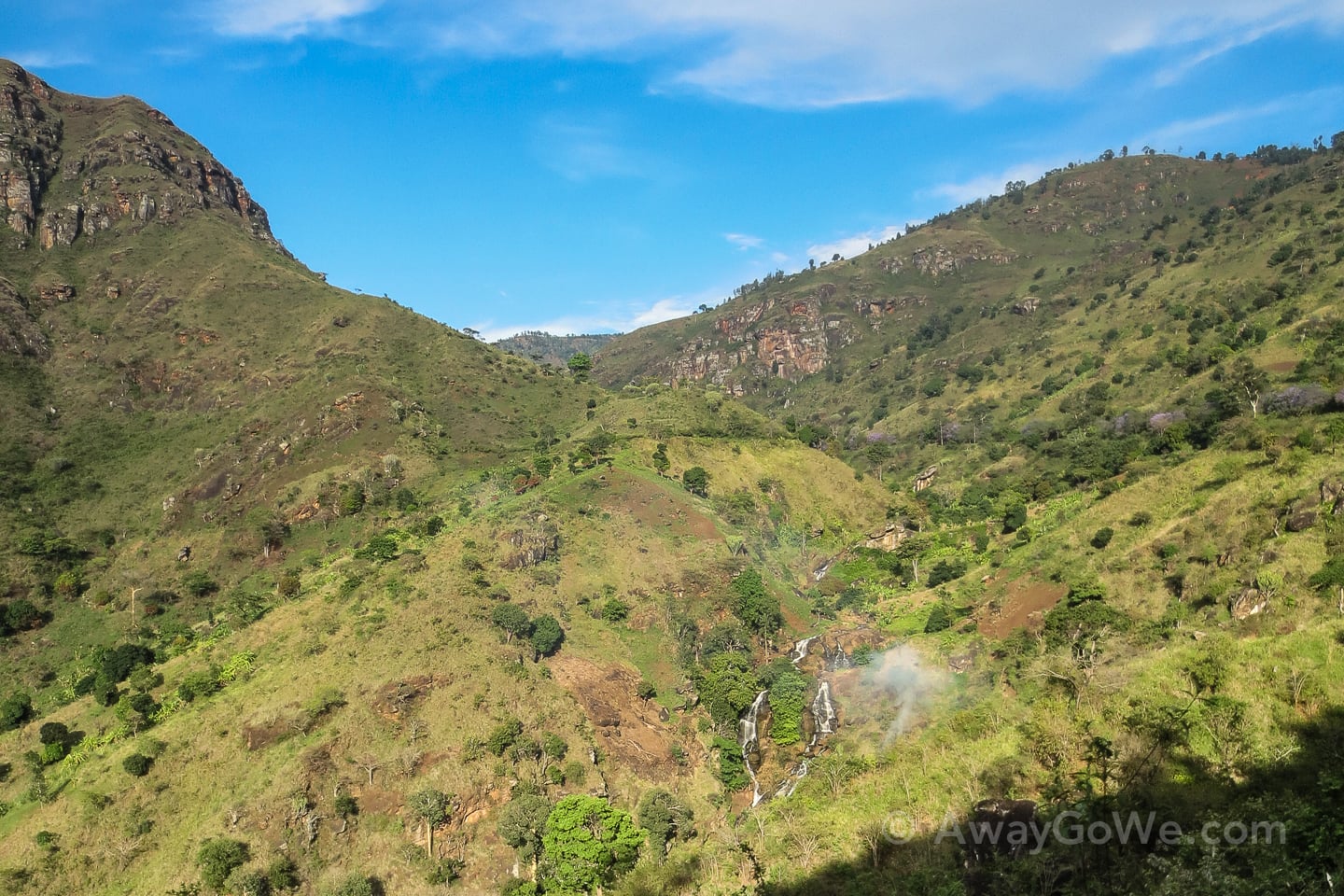
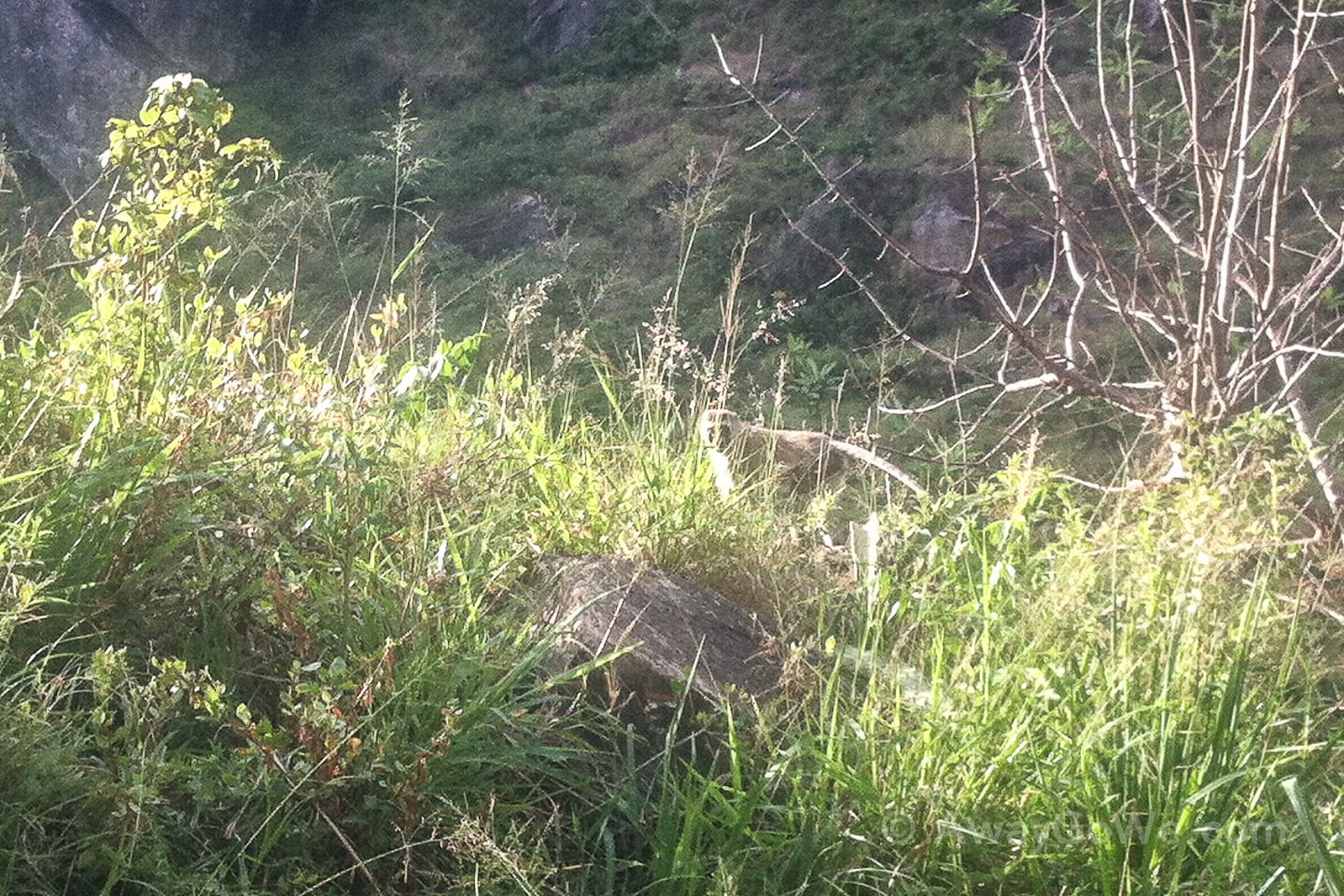
Monkey see…monkey do. See the monkey…do you?
